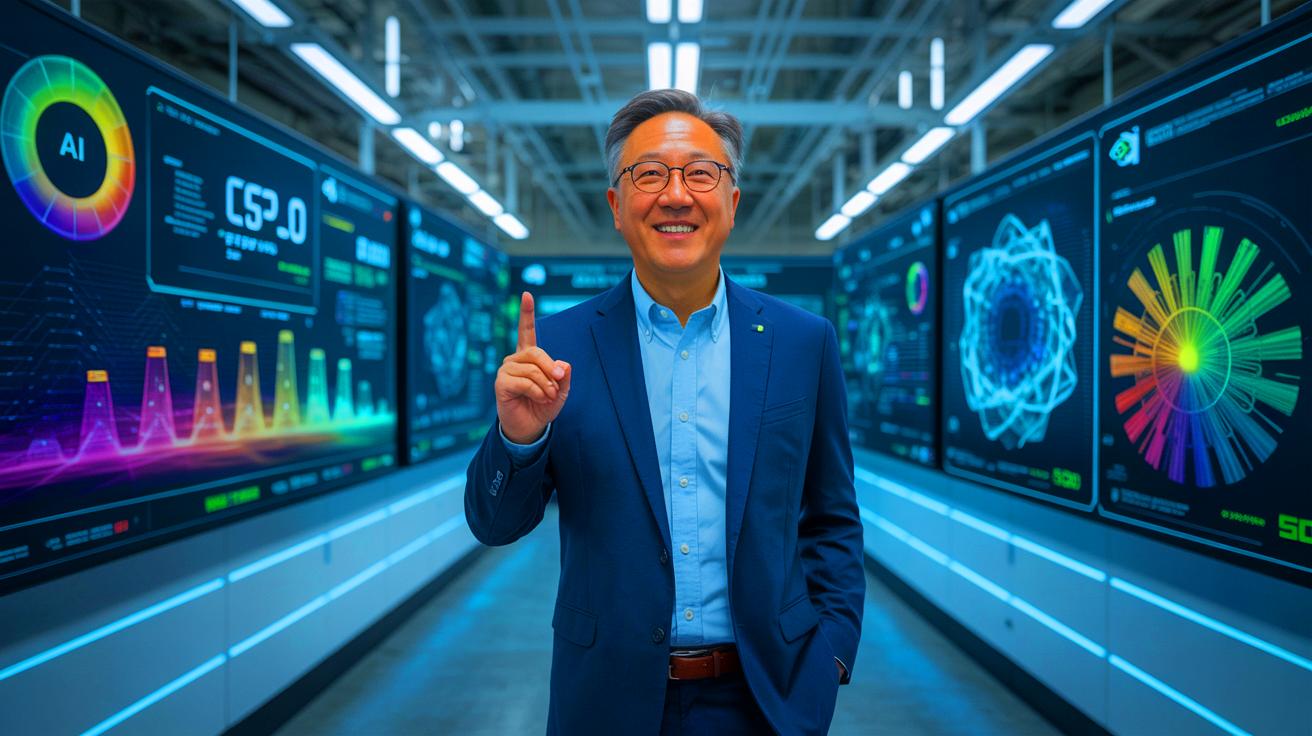IN A NUTSHELL
🌟 Jensen Huang predicts AI will create more millionaires in five years than the internet did in two decades.
🚀 Huang views AI as a transformative technology that blurs the line between creativity and technical execution.
🏭 Future companies will need dual engines for traditional output and AI development to stay competitive.
💰 Nvidia plans to invest $500 billion in AI infrastructure to drive the next wave of technological advancement.
In a rapidly evolving technological landscape, Nvidia CEO Jensen Huang has made a striking prediction: artificial intelligence (AI) will create more millionaires in five years than the internet did in two decades. Speaking on the All In podcast, Huang depicted AI as not just a transformative technology but a historic equalizer, unlocking opportunities for creators, developers, and businesses at an unprecedented scale. As the leader of Nvidia, a trillion-dollar company driving the AI boom, Huang offered a glimpse into the swift pace of advancements in the field. Those who embrace AI, he suggested, will thrive, while those who ignore it may risk obsolescence.
AI’s Economic Disruption: Outpacing the Internet Boom
Huang’s perspective on AI is that it is not merely a tool that replaces jobs but a force that is creating entirely new industries. By streamlining product development and removing complex technical barriers, AI is enabling individuals and businesses to unlock substantial value. Huang stated, “AI causes people to create things that others would like to buy,” positioning it as the greatest technology equalizer of all time. This transformative shift, he argues, will surpass the internet revolution in terms of impact.
AI is blurring the lines between creative thinking and technical execution. Where programming once required fluency in complex coding languages, interacting with AI through natural language is now enough to build and innovate. Huang highlighted this fusion of skills as a game-changer for the global workforce, leading to the emergence of hybrid professions like AI-powered marketing strategists. This evolution means traditional job roles are being redefined, fueling debates on the future of work.
Companies of the Future: Dual Engines of Productivity
Huang envisions a future where every company operates two parallel engines: one for traditional output and another for AI development. Tesla serves as an example, with its dual approach of car manufacturing and AI system development for autonomous driving. This AI-driven model will not be limited to tech giants but will be essential for any business aiming to remain competitive in an era dominated by automation and digital intelligence.
Huang’s vision suggests that companies will need to invest in AI infrastructure to drive innovation and efficiency. The integration of AI into business models is seen not as a luxury but as a necessity to survive in a rapidly changing economic environment. This perspective challenges industries to rethink their strategies and adapt to the evolving landscape.
The $500 Billion Infrastructure Race
Nvidia is leading the charge in building the infrastructure necessary for the AI revolution. The company plans to manufacture $500 billion worth of AI supercomputers in Arizona and Texas over the next four years. These systems will serve as the engines of the AI economy, enabling trillions in industry-wide value creation.
Huang emphasized the extraordinary efficiency of small, highly skilled AI teams. For instance, labs like OpenAI can create significant value with a relatively small number of researchers. This productivity leverage is unmatched by previous industries, with AI’s compounding returns accelerating breakthroughs across sectors. This infrastructure race underscores the importance of investing in AI capabilities to maintain competitiveness.
Adapt or Be Left Behind: The Necessity of AI Proficiency
Huang’s most urgent message is clear: AI proficiency is now essential. Those who fail to integrate AI into their workflow risk being displaced by those who do. “Anybody who is not using AI is going to lose their job to someone who does,” he warned. For Huang, AI is not just an opportunity for innovation and wealth but a baseline for survival in the modern economy.
This call to action emphasizes the need for individuals and businesses to prioritize AI literacy and integration. As AI continues to reshape industries, the ability to adapt and harness its potential will determine future success and longevity in the marketplace.
As Jensen Huang’s bold prediction suggests, the impact of AI is set to surpass previous technological revolutions in both scale and speed. The opportunities AI presents are vast, yet they come with challenges that require adaptation and foresight. As we stand on the brink of this new era, what steps should society take to ensure that the benefits of AI are equitably distributed and its potential fully realized?
This article is based on verified sources and supported by editorial technologies.
Did you like it? 4.5/5 (25)

